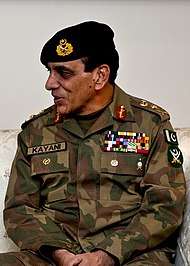Chairman Joint Chiefs of Staff Committee
The Chairman Joint Chiefs of Staff Committee (CJCSC) is, in principle, the highest-ranking and senior most Military Officer, typically at four-star rank, in the Pakistan Armed Forces who serves as a Principal Staff Officer military adviser to the civilian government led by elected Prime minister of Pakistan and his/her National Security Council.:153–154[1] The role of advisement is also extended to the elected members in the bicameral Parliament and the Ministry of Defence.:42[2] The Chairman leads the meetings and coordinates the combined efforts of the Joint Chiefs of Staff Committee (JCSC), comprising the Chairman, the Chief of Army Staff and Chief of Air Staff and the Chief of Naval Staff, Commandant of Marines, DG Strategic Plans Division, and commanders of the service branches in the paramilitary command.:145–146[3]
| Chairman of the Joint Chiefs of Staff Committee
چیئرمین مشترکہ رؤسائے عملہ کمیٹی | |
|---|---|
 Flag of the Chairman Joint Chiefs of Staff Committee | |
| Pakistan Armed Forces | |
| Type | Principal Staff Officer |
| Abbreviation | CJCSC |
| Member of | |
| Reports to | Minister of Defence |
| Residence | Islamabad, Pakistan |
| Seat | Joint Staff Headquarters Rawalpindi, Pakistan |
| Nominator | Prime Minister of Pakistan |
| Appointer | President of Pakistan |
| Term length | 3 years renewable once |
| Precursor | Chief of Staff to the Commander in Chief of the Army and Navy |
| Formation | 1 March 1976 |
| First holder | General Muhammad Sharif |
| Deputy | Vice Chairman Joint Chiefs of Staff Committee |
Even as the Principal Staff Officer (PSO), the Chairman does not have any authority over the command of the combatant forces.:145[4] The individual service chiefs are solely responsible for the coordination and logistics of the armed and combatant forces. Due to this constraint, the chiefs of army, navy and air force are much in command and control of their respected commands.:146–147[4]
The Chairman's mandate is to transmit strategic communications to the combatant commanders from the Prime minister and President as well as allocate additional funding to the combatant commanders if necessary.:146–147[4] The Chairman is nominated and appointed by the Prime Minister; and is finally confirmed by the President.:1147[4] Unlike United States's Chairman of the Joint Chiefs of Staff, the appointment of Chairman does not need confirmation via majority vote by the Parliament. Although, the appointment needs confirmation from the Prime minister. By statute, the Chairman is appointed as a four-star general, four-star air chief marshal and/or four star admiral. By law required, all four-star officers are required to have vast experience in joint uniformed services of Pakistan during their 40-year-long military careers.:148[4]
The post of CJCSC was created by former Prime minister of Pakistan Zulfikar Ali Bhutto in March 1976, and the first Chairman was four star rank officer, General Muhammad Shariff. The current holder of the office is General Nadeem Raza appointed in 2019. Graduated from Cantt Public School (F G Cantt Public School) Malir Cantt Karachi in 1976.[5]
Appointment preferences
Despite the post of the chairmanship is bound constitutionally for the rotation, the army generals are strongly preferred for such post, despite coming short of their qualifications, by the civilian prime ministers in a view of stabilizing the civil military relations.:229[6]:426–427[7]
Unlike the American system where the balance is made between the branches of the U.S. military, the majority of the chairmen are appointed from the department of the army, superseding the officers in the navy, marines, and the air force.[8]
In 1999, Prime Minister Sharif notably refused to appoint the senior most officer, Admiral Fasih Bokhari, to such post in favor of appointing junior-most officer, Gen. Pervez Musharraf. This action of Prime Minister Sharif led towards Adm. Bokhar revolting against this decision in public in 1999, creating strain in the relation between the civilian government and the military.[9]
The four-star admirals in the Pakistan Navy have been notably superseded by the junior army officers, in instances took place in 2005 when Adm. Karim was superseded by junior-most Lt-Gen. Ehsan ul Haq[10] and, in 2011 when Adm. Numan was bypassed in favor of Lt-Gen. Wynne.[11] In 2014, the practice continued by the civil government when Adm. Asif Sandila was bypassed and overlooked when the junior most officer, Lt-Gen. Rashad Mahmood was eventually appointed as Chairman joint chiefs.[12][13]
| Seniority in Navy's Candidacy for Chairman joint chiefs | Eventual Appointment for Chairman joint chiefs from Army | Year Zone of appointment |
|---|---|---|
| Adm. Fasih Bokhari | Lt-Gen. Pervez Musharraf | 1999 |
| Adm. Shahid Karim-ullah | Lt-Gen. Ehsan ul Haq | 2006 |
| Adm. Noman Bashir | Lt-Gen. K. Shamim Wynne | 2011 |
| Adm. Asif Sandila | Lt-Gen. Rashad Mahmood | 2014 |
Due to such preferential treatments given to army department, the retired admirals have given a strong criticism of such criterion, expressing their dissatisfaction towards the appointment processes.[14]
List of Chairman Joint Chiefs of Staff Committee
| No. | Chairman Joint Chiefs of Staff Committee | Took office | Left office | Time in office | Defence branch | Prime Minister | |
|---|---|---|---|---|---|---|---|
| 1 | General Muhammad Shariff NI(M), SI(M) (1921–1999) | 1 March 1976 | 22 January 1977 | 327 days | Zulfikar Ali Bhutto | ||
| 2 | Admiral Mohammad Sharif NI(M), HI(M), SI(M), HJ, SJ, SK (1920–2015) [lower-alpha 1] | 22 January 1977 | 13 April 1980 | 3 years, 82 days | Zulfikar Ali Bhutto | ||
| 3 | General Iqbal Khan NI(M), SBt | 13 April 1980 | 22 March 1984 | 3 years, 344 days | None 1977 – 1985 | ||
| 4 | General Rahimuddin Khan NI(M), SBt (born 1924) | 22 March 1984 | 29 March 1987 | 3 years, 38 days | Mohammad Khan Junejo | ||
| 5 | General Akhtar Abdur Rahman NI(M), SBt (1924–1988) | 29 March 1987 | 17 August 1988 † | 1 year, 110 days | Mohammad Khan Junejo | ||
| 6 | Admiral Iftikhar Ahmed Sirohey NI(M), HI(M), SI(M), SBt (born 1934) | 10 November 1988 | 17 August 1991 | 2 years, 280 days | Benazir Bhutto | ||
| 7 | General Shamim Allam NI(M), SJ, SBt (born 1937) | 17 August 1991 | 9 November 1994 | 3 years, 84 days | Nawaz Sharif | ||
| 8 | Air Chief Marshal Feroz Khan NI(M), SBt (born 1939) | 10 November 1994 | 9 November 1997 | 2 years, 364 days | Benazir Bhutto | ||
| 9 | General Jehangir Karamat NI(M), SBt (born 1941) | 9 November 1997 | 7 October 1998 | 332 days | Nawaz Sharif | ||
| 10 | General Pervez Musharraf NI(M), TBt (born 1943) | 7 October 1998 | 7 October 2001 | 3 years, 0 days | Nawaz Sharif | ||
| 11 | General Aziz Khan NI(M), SBt (born 1947) | 7 October 2001 | 7 October 2004 | 3 years, 0 days | Zafarullah Khan Jamali | ||
| 12 | General Ehsan ul Haq NI(M) (born 1949) | 7 October 2004 | 7 October 2007 | 3 years, 0 days | Shaukat Aziz | ||
| 13 | General Tariq Majid NI(M), HI(M) (born 1950) | 7 October 2007 | 7 October 2010 | 3 years, 0 days | Muhammad Mian Soomro Yousaf Raza Gillani | ||
| 14 | General Khalid Shameem Wynne NI(M) (1953–2017) | 8 October 2010 | 8 October 2013 | 3 years, 0 days | Yousaf Raza Gillani Raja Pervaiz Ashraf Mir Hazar Khan Khoso | ||
| - | General Ashfaq Parvez Kayani NI(M), HI(M) (born 1952) Acting | 8 October 2013 | 27 November 2013 | 50 days | Nawaz Sharif | ||
| 15 | General Rashad Mahmood NI(M) (born 1953) | 27 November 2013 | 28 November 2016 | 3 years, 1 day | Nawaz Sharif | ||
| 16 | General Zubair Hayat NI(M) (born 1960) | 28 November 2016 | 27 November 2019 | 3 years, 30 days | Nawaz Sharif Shahid Khaqan Abbasi Imran Khan | ||
| 17 | General Nadeem Raza HI(M) | 27 November 2019 | Incumbent | 262 days | Imran Khan |
Chairman of the Joint Chiefs of Staff by Branch of Service

- Army - 13
- Navy - 2
- Air Force - 1
See also
Notes
- General Sharif resigned in 1977 after the coup but had been ineffective from his duty as early as 22 January 1977. Admiral M.S. Khan filled his position on several occasion. General Sharif's resignation was not approved until March 1979.
References
- USA, IBP (2009). "Joint Chiefs of Staff Committee". Pakistan Air Force Handbook: Strategic Information and Contacts (google books) (3rd ed.). Islamabad: Lulu.com. p. 222. ISBN 9781438737027.
- Cheema, Pervaiz Iqbal (2002). The armed forces of Pakistan (1st ed.). New York: New York University Press. p. 200. ISBN 9780814716335. Retrieved 30 December 2017.
- Rizvi, H. (2000). "Civilian interlude". Military, State and Society in Pakistan (googlebooks) (1st ed.). New York, U.S.: Springer. p. 295. ISBN 9780230599048. Retrieved 30 December 2017.
- Rizvi, H. (2000). "Civilian Interlude". Military, State and Society in Pakistan (google books). U.K.: Springer. p. 300. ISBN 9780230599048. Retrieved 2 January 2018.
- http://dawn.com/news/1058927/raheel-sharif-being-appointed-new-army-chief
- Shafqat, Saeed (1997). Civil-military relations in Pakistan : from Zulfikar Ali Bhutto to Benazir Bhutto. Boulder, Colo.: Westview Press. ISBN 9780813388090.
- Nawaz, Shuja. Crossed Swords: Pakistan, Its Army, and the Wars Within. Oxford University Press. ISBN 9780195476606. Retrieved 1 February 2017.
- Dogar, PA, Brig. Yakob Ali (January 1999). "Pakistan's Higher Defence Organization". www.defencejournal.com. Islamabad, Pakistan: defence Journal, Ali. Retrieved 2 January 2018.
- Siddiqi, M A (8 September 2017). "Only PM to choose 30% of Pakistan's army chiefs". The Friday Times. The Friday Times. Retrieved 2 January 2018.
- "New JCSC chief, VCOAS appointed". Dawn.com. Dawn Newspapers. 3 October 2004. Retrieved 10 January 2017.
- Maverick Pakistan release. "Navy chief to command Pakistani military". Maverick Pakistan release. Archived from the original on 5 August 2018. Retrieved 11 March 2013.
- "Nawaz meets Kayani; appointment of new CJCSC discussed". DAWN.COM. 4 October 2013. Retrieved 6 August 2018.
- "CJCSC headhunt: Names shortlisted for Gen Wynne's replacement | The Express Tribune". The Express Tribune. 2 October 2013. Retrieved 6 August 2018.
- Amin, A.H (May 2001). "Remembering Our Warriors – Vice Admiral Tasneem". www.defencejournal.com. Islamabad, Pakistan: Defence Journal, Amin. Retrieved 18 August 2017.
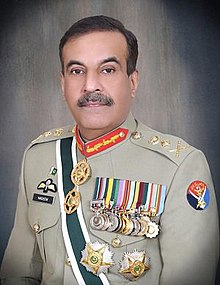
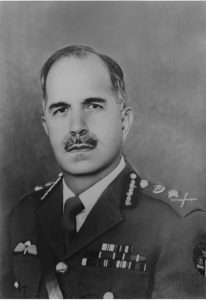


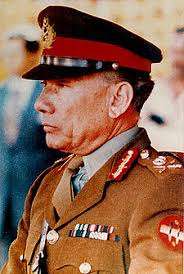


.jpg)
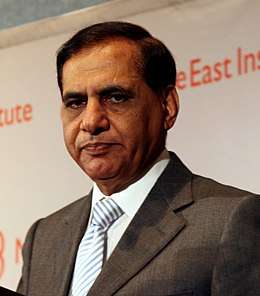
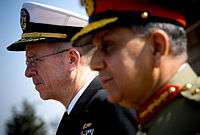
.jpg)
